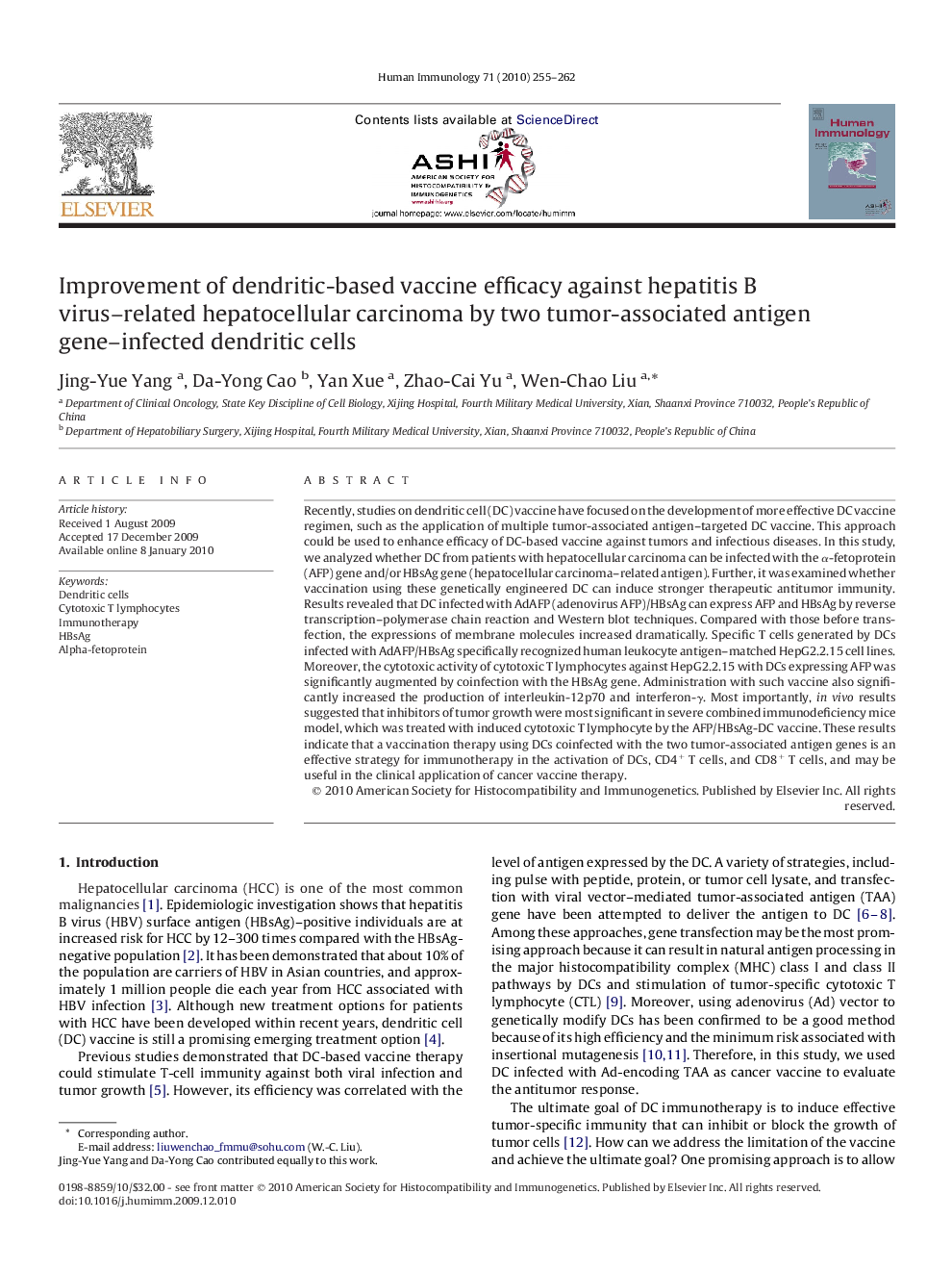| Article ID | Journal | Published Year | Pages | File Type |
|---|---|---|---|---|
| 6116909 | Human Immunology | 2010 | 8 Pages |
Recently, studies on dendritic cell (DC) vaccine have focused on the development of more effective DC vaccine regimen, such as the application of multiple tumor-associated antigen-targeted DC vaccine. This approach could be used to enhance efficacy of DC-based vaccine against tumors and infectious diseases. In this study, we analyzed whether DC from patients with hepatocellular carcinoma can be infected with the α-fetoprotein (AFP) gene and/or HBsAg gene (hepatocellular carcinoma-related antigen). Further, it was examined whether vaccination using these genetically engineered DC can induce stronger therapeutic antitumor immunity. Results revealed that DC infected with AdAFP (adenovirus AFP)/HBsAg can express AFP and HBsAg by reverse transcription-polymerase chain reaction and Western blot techniques. Compared with those before transfection, the expressions of membrane molecules increased dramatically. Specific T cells generated by DCs infected with AdAFP/HBsAg specifically recognized human leukocyte antigen-matched HepG2.2.15 cell lines. Moreover, the cytotoxic activity of cytotoxic T lymphocytes against HepG2.2.15 with DCs expressing AFP was significantly augmented by coinfection with the HBsAg gene. Administration with such vaccine also significantly increased the production of interleukin-12p70 and interferon-γ. Most importantly, in vivo results suggested that inhibitors of tumor growth were most significant in severe combined immunodeficiency mice model, which was treated with induced cytotoxic T lymphocyte by the AFP/HBsAg-DC vaccine. These results indicate that a vaccination therapy using DCs coinfected with the two tumor-associated antigen genes is an effective strategy for immunotherapy in the activation of DCs, CD4+ T cells, and CD8+ T cells, and may be useful in the clinical application of cancer vaccine therapy.
